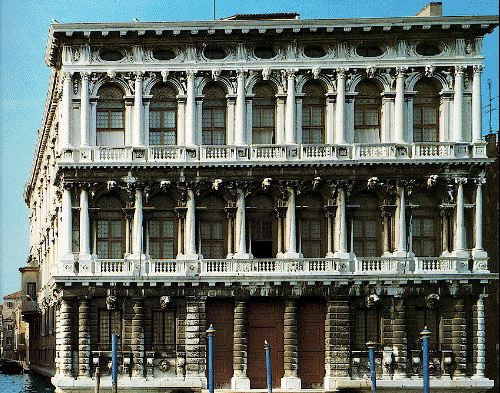Ca' Rezzonico
Jpg: Unknown
The Palazzo Rezzonico is now known
as the Ca' Rezzonico.
In 1880 it was owned by Robert Browning's
son who had purchased it with his wife's money and was in the process of
restoring it. Because of his father's artist affiliations the place became
somewhat of a magnet for other artists. In '80 Sargent set up a studio
there where he meets other artists who had studios inside -- Giovanni
Boldini being one and possibly runs into James
Abbott McNeill Whistler during this trip.
Robert Browning lived here with his
son briefly in 1888–89 when he was in failing health and where he eventually
died. In 1881 the elder Browning was also painted by four different artists
at Rezzonico including Sargent's friends Ralph
Curtis, and Charles
Stuart Forbes.
* * *
In 1935 the
Venice City Council bought the palazzo and created the Museum of
Eighteenth-Century Venice which it is today.
The building
was first started in 1649. The Bon family of Venice commissioned the architect
Baldassarre Longhena to build the the palace making it a baroque,
but
because of financial difficulties the Bons sold the property to Giambattista
Rezzonico, a Lombardy merchant and banker. He hired the architect Giorgio
Massari to finish it.
In 1748 Carlo,
Giambattista Rezzonico's son, became Pope Clement XIII, no bad for a son
of a banker. The interior decorating was begun in 1752, and the greatest
artists then working in Venice were called in, who include Giambattista
Tiepolo, Gaspare Diziani and Jacopo Guarana. Tiepolo painted the ceiling
frescoes for the room now known as the Nuptial Allegory Room and for the
Throne Room (Allegory of Merit), which were the artist's last works before
leaving Venice. Gaspare Diziani painted the fresco in the Pastel
Room, showing the Triumph of Poetry, while Jacopo Guarana painted the Allegory
of the Virtues fresco in the Tapestry Room.
Notes:
|


